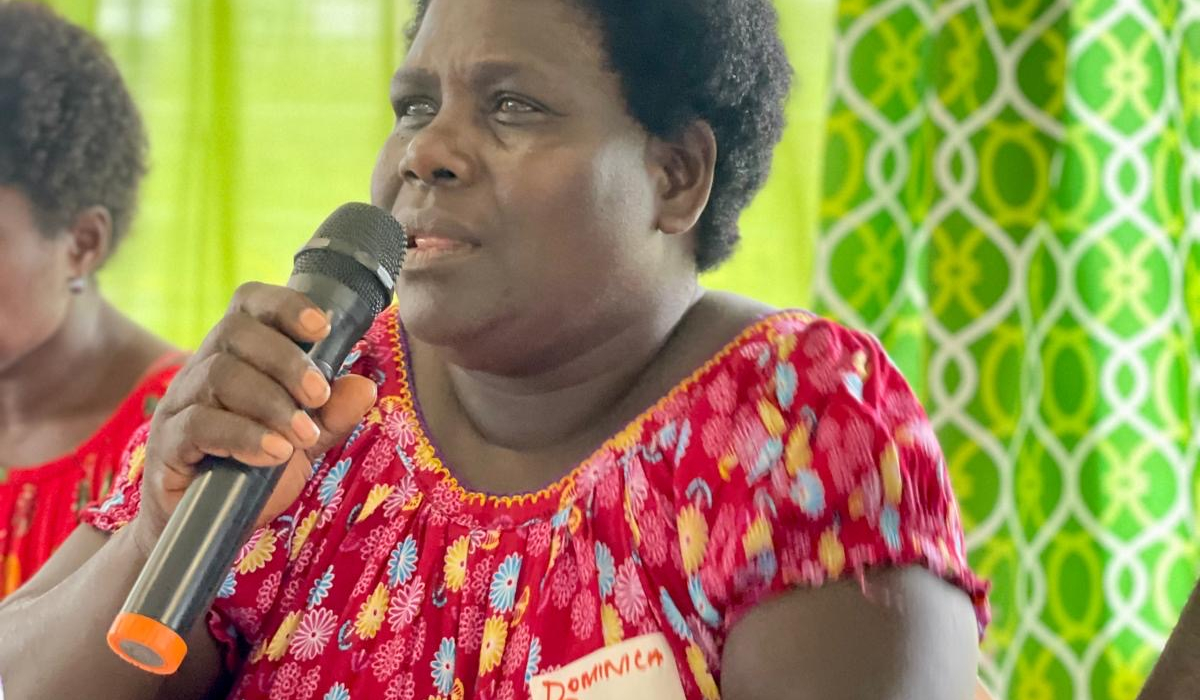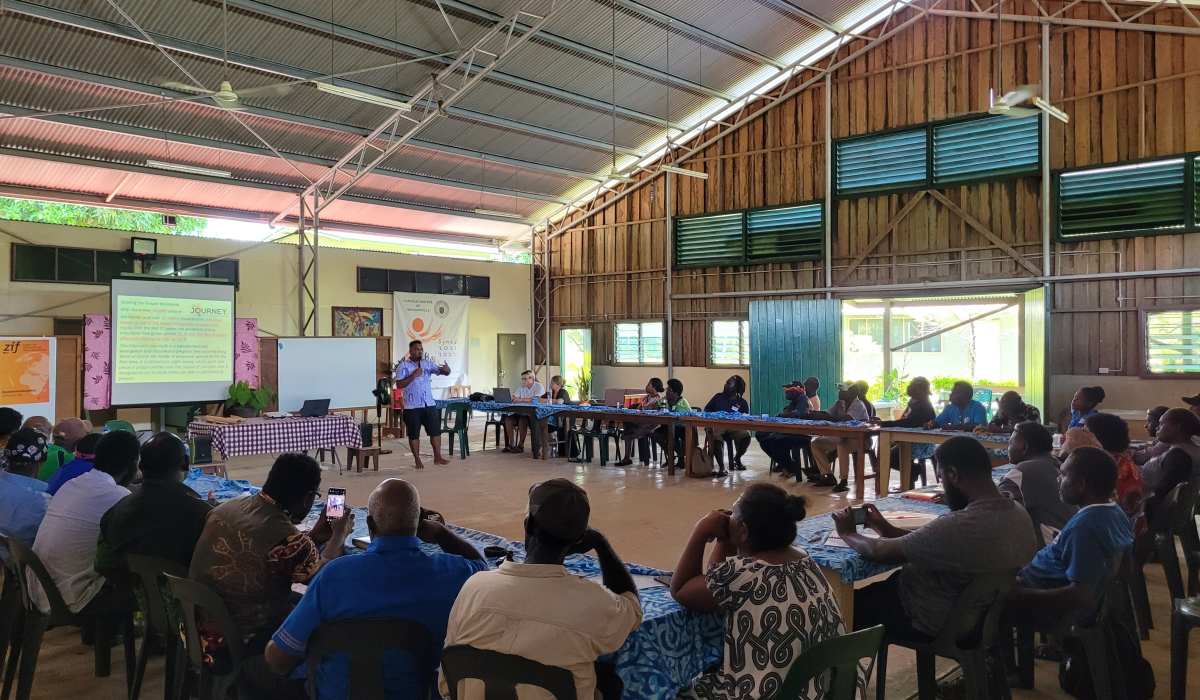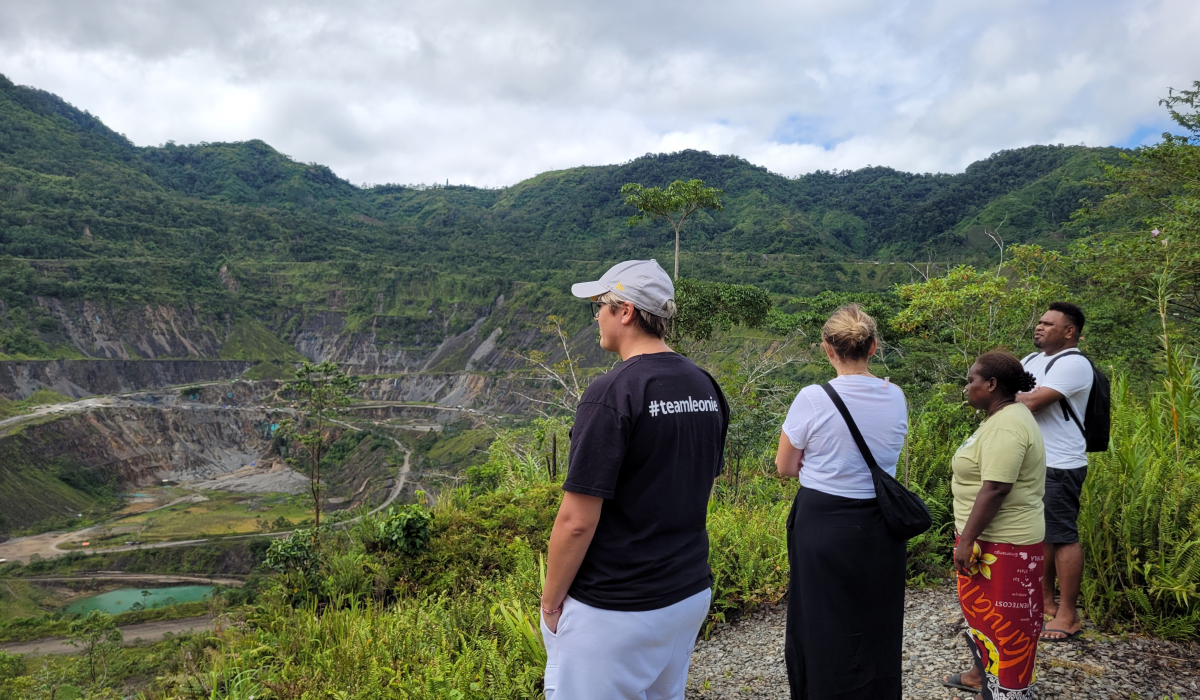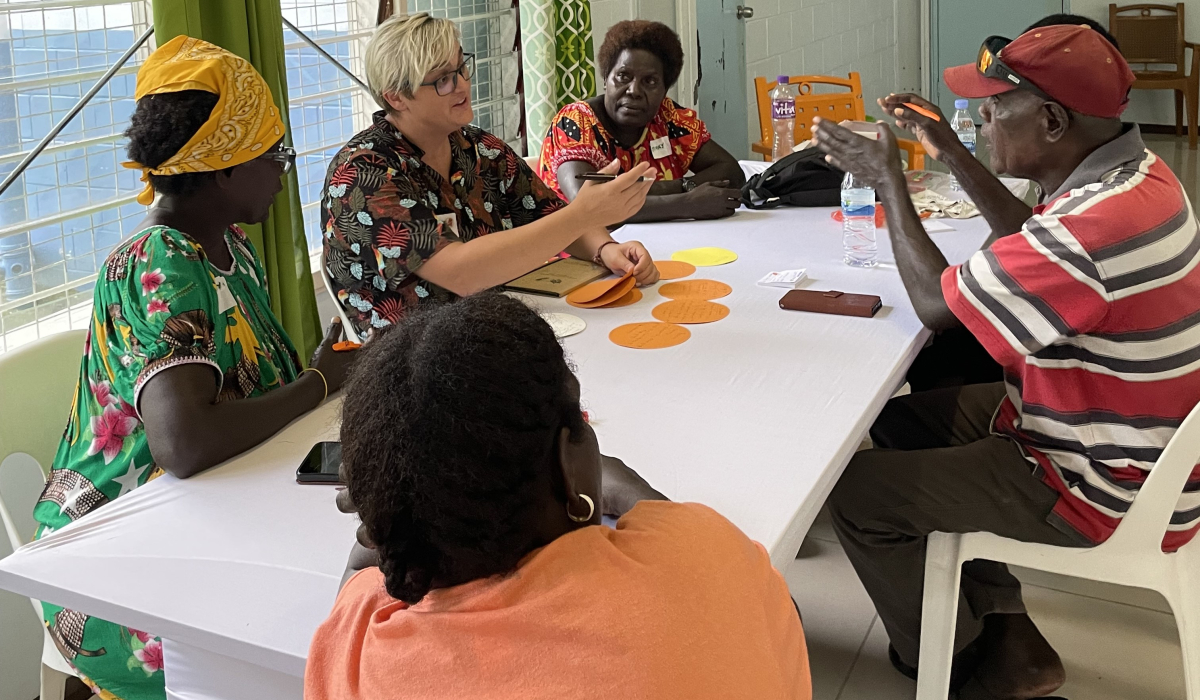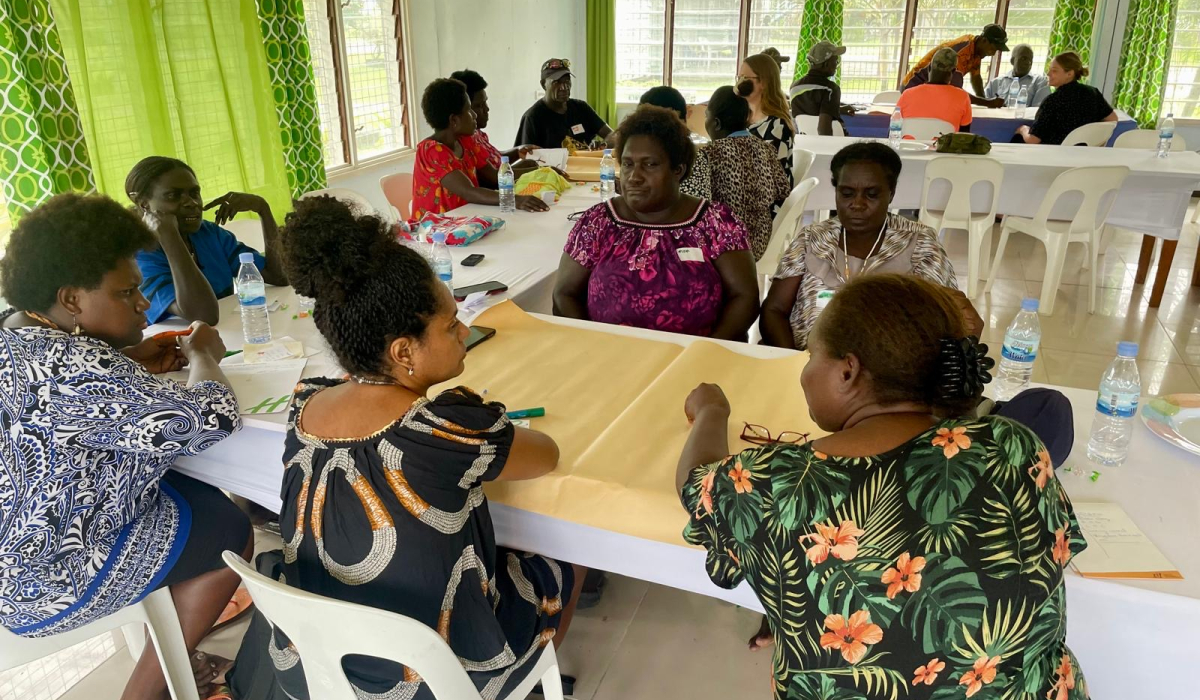ZIF Workshops in Bougainville: support of local actors in transition process
On 12/13 and 15/16 August, ZIF held two two-day workshops in Bougainville together with its partner organization Peace and Conflict Studies Institute Australia (PaCSIA). The activity was conducted through the ZIF project “Strengthening Mediation and Dialogue Capacities,” financed by the German Federal Foreign Office.
The aim of the workshops was to bring together key actors from the autonomous government of Bougainville (ABG) as well as civil society organizations, such as the Bougainville Transition Dialogue Facilitators, to enhance their cooperation regarding the facilitation of the transition process.
To enrich the workshops with lessons learned from other contexts, ZIF brought three international experts with experience in transition processes to Bougainville to report on their work and present on successes and challenges in cooperation with their respective governments.
Ajna Jusić from the Bosnian organization “Forgotten Children of War Association” (ZDR) reported on working with people who were victims of rape, forced marriages, humanitarian aid workers or peacekeepers during the war and who are highly stigmatized in Bosnian society.
Gabriel Bate'e and Constance Selu talked about their work with the organization “Prison Fellowship Solomon Islands” (PFSI). PFSI works with prisoners who have committed serious crimes in connection with the civil war in the Solomon Islands.
The two ZIF project team members supplemented these inputs with examples from Germany’s past, including with regard to atrocities of the Nazi regime and injustices during the communist rule.
The experts' contributions followed by facilitated peer exchanges enabled participants to draw parallels with their own conflict realities and to learn from the experts' best practices in post-conflict contexts. In Bougainville, dealing with the crimes committed during the civil war continues to be an important issue. Many perpetrators continue to live side by side with their victims without being prosecuted, and the lack of reappraisal continues to hinder the transition process.
The first workshop took place in Arawa, the former capital. It is located near the Panguna mine, a large gold and copper mine that was exploited by an Australian company from the 1960s onwards and was ultimately the trigger for the civil war. The workshop in Arawa enabled participants from the central and southern regions to take part.
The second workshop was held in the capital Buka, and enabled participants from northern parts of the island to attend. In both workshops the sharing of the experiences from different contexts provided the impetus for creative ideas for enhancing cooperation on transition aspects, such as setting up ombudsperson offices for victims of sexualized violence or holding regular stakeholder meetings between the government and civil society. The forum for open exchange that the workshops provided was perceived as very positive, as the different groups had rarely or never come together in this form.
As next steps participants, particularly the Bougainville Transition Dialogue Facilitators, will discuss the workshops’ findings and ideas in their communities. A follow-up activity from ZIF in cooperation with PaCSIA in further support of the transition process is planned toward the end of the year.
Background:
The Bougainville conflict was a multi-faceted armed conflict that took place from 1988 to 1998 in the then Northern Solomons Province of Papua New Guinea (PNG). The conflict was carried out between PNG and the secessionist forces of the Bougainville Revolutionary Army (BRA) and between the BRA and other armed groups in Bougainville. Hostilities ended with a ceasefire in 1998, followed by a peace agreement in August 2001. In 2019, a non-binding referendum on independence was held, in which an overwhelming majority of 97.7% voted in favor of independence. In July 2021, a timeframe was agreed between the governments of PNG and Bougainville, according to which the transition process for Bougainville is to be completed between 2025 and 2027. Germany, that has a colonial past in Bougainville, has been supporting the transition process for several years, particularly through financial support.
© ZIF/PaCSIA
